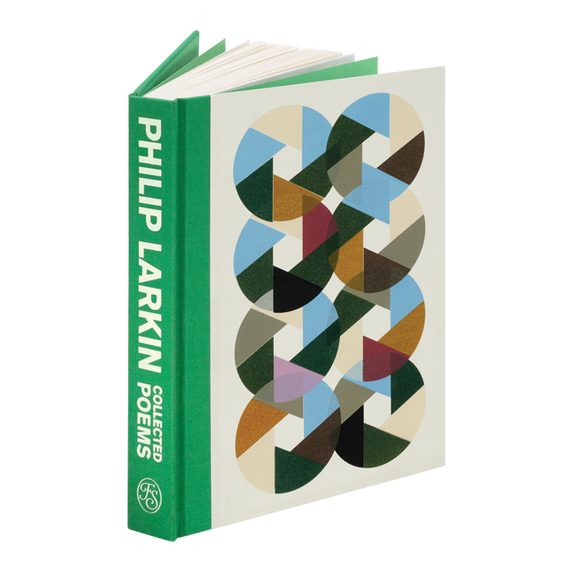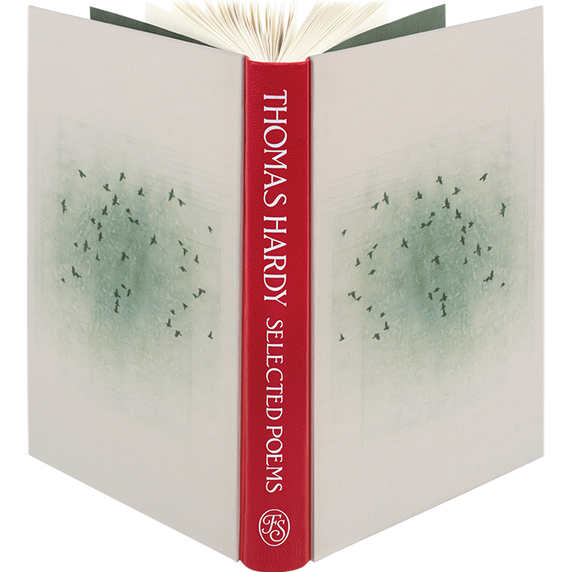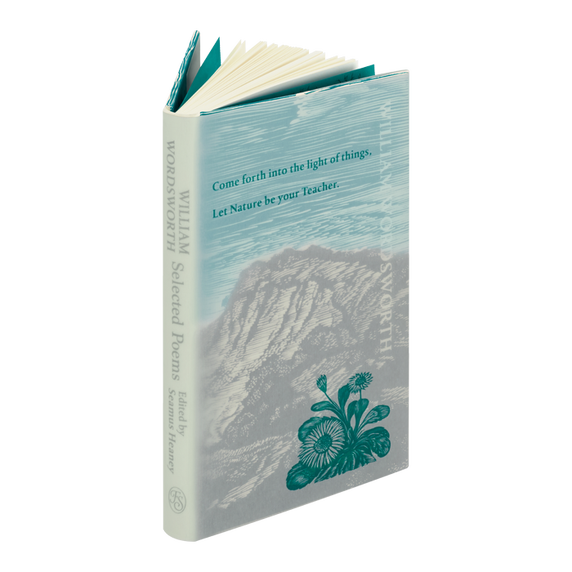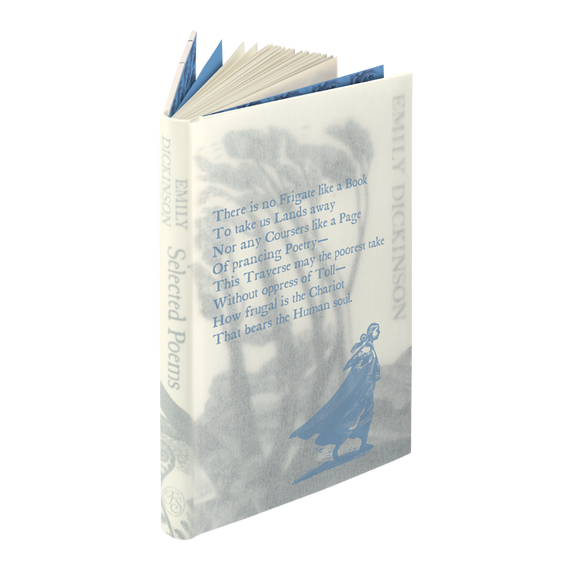
Collected Poems
This exceptional Folio edition of Philip Larkin’s Collected Poems includes a new foreword by Andrew Motion. It is the only edition of Larkin’s poetry to be illustrated with many of the author’s own photographs.

William Blake
Illustrated by the author
Introduced by Patti Smith
With every poem perfectly reproduced from the finest surviving copy of William Blake’s Songs of Innocence and of Experience, this Folio collector’s edition is introduced by Patti Smith.
‘I was fascinated by the possibility that one creates both word and image as did Blake, with copperplate, linen and rag, walnut oils, a simple pencil.’
- Patti Smith, from her introduction
Artist, mystic, poet and craftsman, William Blake had a unique view of the world around him. At the age of eight he saw ‘a tree filled with angels’ and his perception of beauty in an idyllic utopia shines from every luminous detail of his paintings and every line of his poems. Songs of Innocence and of Experience is arguably his defining work. Filled with Blake’s illustrated poems that explore adult themes such as death and social justice, this is a collection of great visual and literary power.
This exquisite edition is reproduced from the finest surviving copy, known as ‘Copy W’, which was printed and hand-coloured by Blake, with the largely unacknowledged help of his wife Catherine and is now held at King’s College, Cambridge. Patti Smith has written a profoundly beautiful introduction to the edition, in which she describes Blake as: ‘A rough-hewn seer who never tasted but English air, who loved Michaelangelo yet never saw Rome’; her words further elevating this unique collector’s edition of a remarkable piece of literary history.
Bound in Brillianta cloth, blocked in gold foil
Set in Caslon
160 pages
Materica endpapers
Ribbon marker
Gilded on all 3 page edges
Presented in a cloth-covered clamshell box with inset label, lined with paper printed with a detail from 'The Blossom'
Book 11⅕˝ x 8⅘˝ Box 12⅕˝ x 9½˝
Credit: King’s College, Cambridge
‘Pity would be no more, If we did not make somebody poor;
And mercy no more could be, If all we as happy as we;’
The poems originally appeared in phases, with Blake first publishing a few copies of Songs of Innocence in 1789, and then combining the sets of poems for a complete volume in 1794. Blake produced and illustrated the original copies himself, selling them privately to collectors and friends. The poems are a strange and wonderful exploration of: ‘the two contrary states of the human soul’. They follow simple rhythms and rhyming patterns, echoing the forms of 18th-century children’s ballads, but their meanings are complex and often ambiguous. Blake railed against the political, social and religious institutions of his time. Here he addresses troubling subjects such as poverty, child labour and the repressive influence of the Church, often through subtle satire.
About Wiliam Blake
Wiliam Blake (1757–1827) was a poet, painter and printmaker. Born in London, where he lived for most of his life, he served an apprenticeship as an engraver before studying at the Royal Academy Schools. His mature work as a visual artist was inspired by the mystical visions he experienced from childhood, and draws on the Bible as well as Milton, Dante and other great poets, many of whose works he illustrated. As a poet, Blake’s best-known work is the Songs of Innocence and of Experience, but he also wrote and illustrated long books of prophetic poetry based on his complex philosophical and religious beliefs, the most famous of which is Jerusalem. Now regarded as a visionary artist and one of the great figures of British art and literature in the Romantic age, his works previously published by Folio include his illustrations to Inferno by Dante Alighieri, Paradise Lost by John Milton, Night Thoughts by Edward Young, the Poems of Thomas Gray and The Pilgrim’s Progress by John Bunyan.
About Patti Smith
Patti Smith is a writer, performer and visual artist. She gained recognition in the 1970s for her revolutionary mergence of poetry and rock. Her seminal album Horses (1975) has been hailed as one of the top albums of all time. She was inducted into the Rock and Roll Hall of Fame in 2007. Smith’s books include Witt (1973), Babe (1978), The Coral Sea (1996), Woolgathering (1992), Auguries of Innocence (2005) and three books of memoirs, the National Book Award-wining Just Kids (2010), chronicling her relationship with artist Robert Mapplethorpe, M Train (2015) and The Year of the Monkey (2019). Patti has introduced the Folio editions of Wuthering Heights (2014), De Profundis (2020) and Faceless Killers (2023).


This exceptional Folio edition of Philip Larkin’s Collected Poems includes a new foreword by Andrew Motion. It is the only edition of Larkin’s poetry to be illustrated with many of the author’s own photographs.


Limited to 750 hand-numbered copies
Over 100 of Thomas Hardy’s greatest poems newly selected and introduced by Robert Macfarlane and with more than 30 specially commissioned illustrations by Stanley Donwood. Each copy is numbered by hand and signed by both anthologist and illustrator.

Published to mark the 250th anniversary of Wordsworth’s birth, Selected Poems is a celebration of the poet’s key shorter works selected and introduced by Seamus Heaney, with exquisite wood engravings by Peter Reddick.

A beautifully presented collection that celebrates the radical style of a visionary American poet. This edition follows the 1955 text prepared by Thomas H. Johnson, which presents the poems as Dickinson intended.
for exclusive offers and updates

